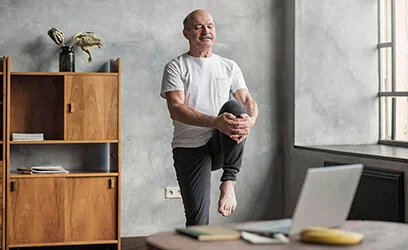If you have experienced hemorrhoids, you may have learned about numerous treatment options. You would probably advise others to do their best to avoid them in the first place. In some instances, the pain, itching, and bleeding can be avoided. Here are a few simple changes you can make to help you avoid hemorrhoids.
Go When You Have the Urge
It just makes sense to go to the bathroom when you first have an urge to go. Too many people ignore the urge and then their stool becomes hard and drier in the bowel. This makes it a lot more difficult to pass. When you strain to get stool to pass, the risk of developing hemorrhoids increases. It’s also important that you don’t force a bowel movement if you don’t need to go. Straining increases pressure put on venous cushions and leads to the development of hemorrhoids. Straining often turns an internal hemorrhoid into an external one.
Don’t Read or Bring Your Phone into the Bathroom
It is so easy to bring your phone for a quick few match three games or to scroll social media. Perhaps you usually grab your favorite book or magazine when you know you’re going to be in the bathroom for a little while. Don’t treat the bathroom as your extended escape; it’s a necessity. Reduce the time you spend in the bathroom by moving books and magazines to another area.
The more time you spend on the toilet, the more likely you will end up straining for bowel movements. The seated position also puts some extra stress on anal blood vessels. These factors can increase your risk of hemorrhoids.
Take a Look at Your Eating Habits
In order to prevent hemorrhoids, stool needs to be soft so it’s easy to pass. Making dietary choices and hydrating can help keep it at the right consistency. Stool that is hard is difficult to pass, and many times it is due to not consuming enough fiber from fruits, vegetables, and whole grains. Your doctor may recommend supplements, but you can also add more fiber by eating more fibrous foods. Fiber helps avoid constipation. It’s often constipation that causes you to strain, and that makes it more likely you’ll have hemorrhoids.
A note about fiber. Make sure you drink plenty of water when you eat fiber or take a fiber supplement. If you don’t drink enough water, fiber can be counter-productive and make your stool hard. Please be sure to talk to your primary care physician or your GI specialist before increasing your intake of fiber. Some conditions like IBS or diverticulitis can be irritated by too much fiber. Also, be sure to listen to your body. Avoid foods that irritate your bowels. Dairy products are a trigger for some people. For others, it may be eating too many refined foods or gluten.
Get to Moving
Moderate exercise can help improve or prevent many different digestive and bowel issues including hemorrhoids. When you are too sedentary, your whole metabolism slows down, including your bowels. Exercise encourages waste to continue moving through the intestinal tract. Choose anything that suits your lifestyle and is appropriate for your age and health. Pretty much everything counts, including walking, running, yoga, swimming, or biking. However, if you’ve already been diagnosed with hemorrhoids, avoid weightlifting and squats as these motions increase abdominal pressure. These types of exercises often do more harm than good.
Know When to See a GI Specialist
If you notice a change in your symptoms or rectal bleeding increases, schedule an appointment to have your symptoms evaluated. There are plenty of options for hemorrhoid treatment, and not all of them are surgical. It’s also important to see a healthcare professional to rule out other serious conditions. If you are concerned about hemorrhoids or rectal bleeding, please contact the Digestive Health Institute. We’ll be happy to schedule an exam to determine what is going on and what treatment options may be needed.

